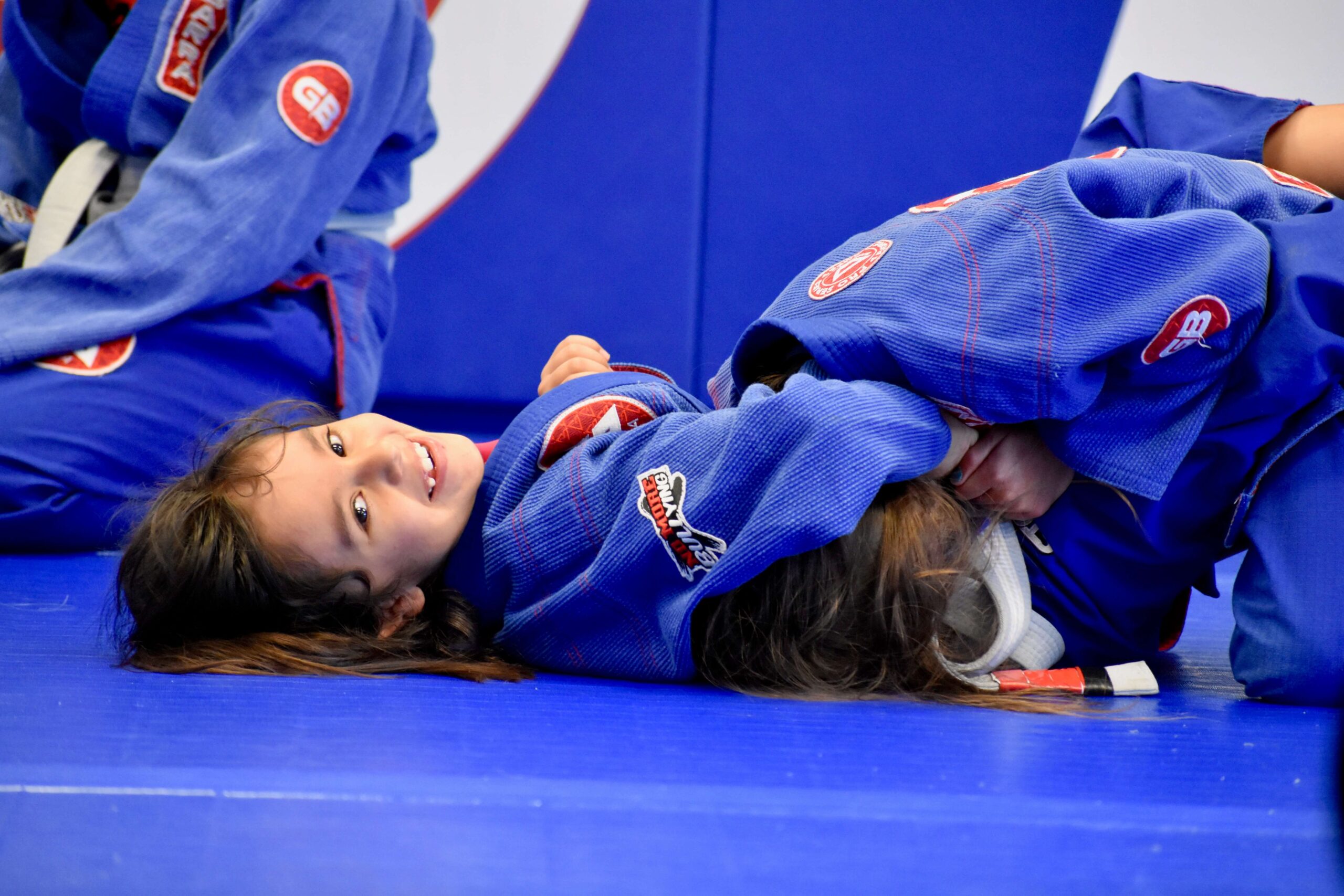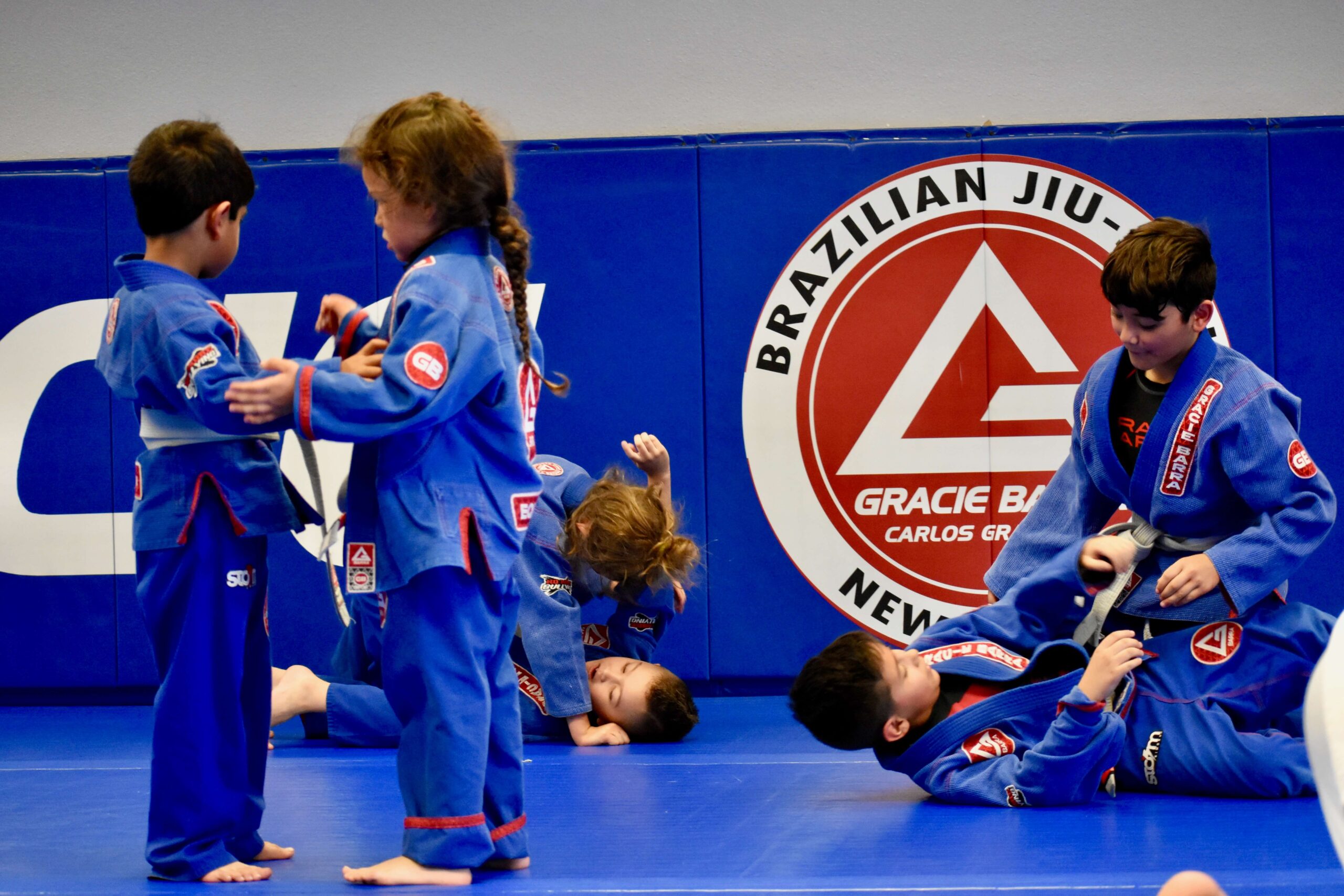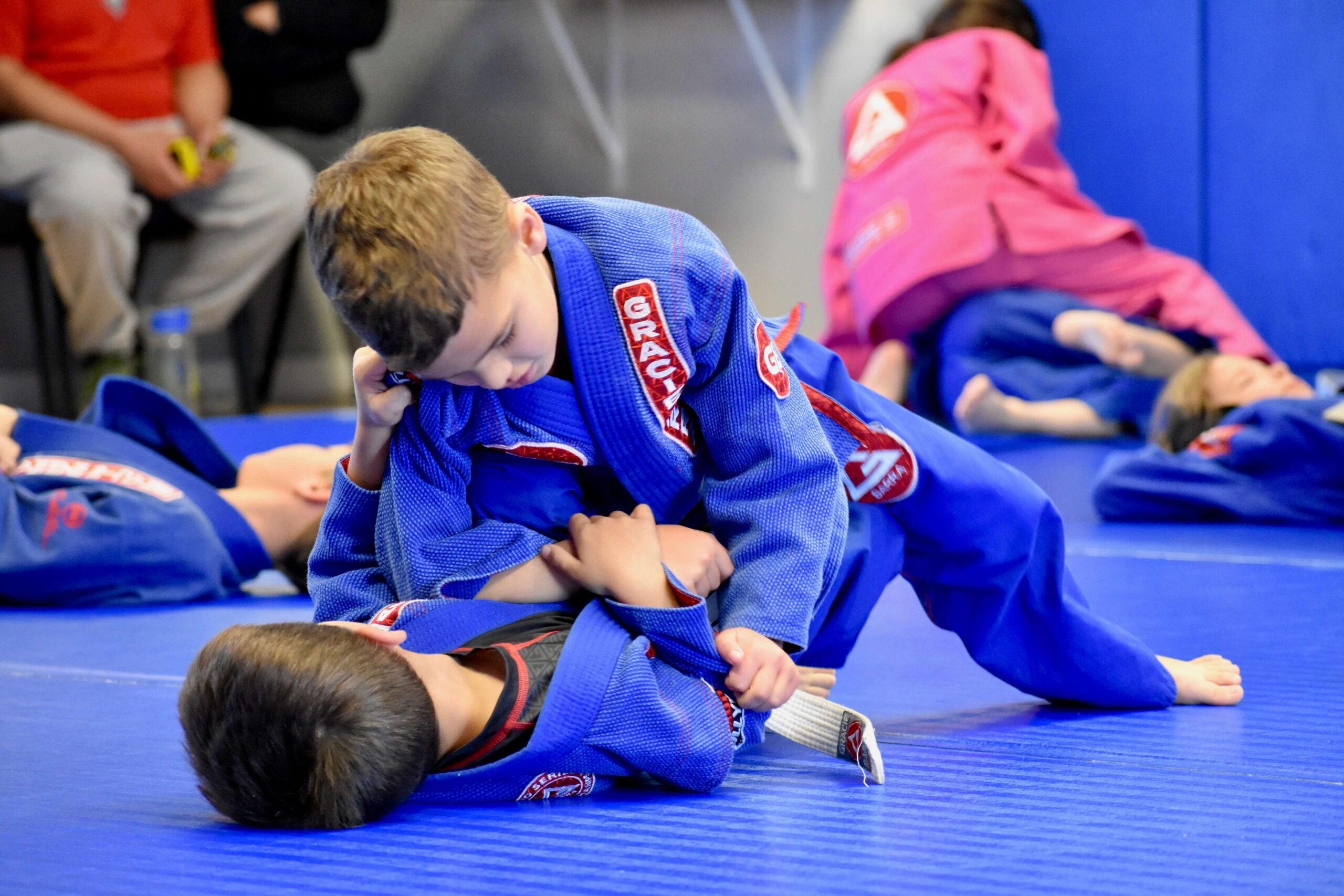Introducing:
Brazilian Jiu-Jitsu (BJJ) stands out as a transformative practice that extends far beyond physical activity, profoundly impacting the personal development of children. In this article, we delve into the myriad ways in which engagement with BJJ fosters the cultivation of values, the acquisition of skills, and the nurturing of emotional and mental well-being in our young practitioners.

Discipline and Respect:
BJJ instills in children the values of discipline and respect, emphasizing the importance of adhering to rules, showing respect to peers and instructors, and maintaining etiquette on the mat. This fosters an environment of mutual respect, teaching children the significance of these virtues in all aspects of their lives.
Self-Confidence and Self-Esteem:
As children progress in BJJ, mastering new techniques and achieving milestones, they experience a boost in self-confidence and self-esteem. Overcoming challenges and earning belts serve as tangible markers of their progress, empowering them to navigate challenges with newfound assurance.
Problem Solving and Decision Making:
BJJ is inherently strategic, requiring children to think critically and make quick decisions in the heat of the moment. Through training and matches, they develop problem-solving skills and learn to handle pressure effectively, skills that are invaluable in various areas of life.
Resilience and Persistence:
In BJJ, children encounter setbacks and obstacles, teaching them the importance of resilience and persistence. Learning to overcome frustration and setbacks builds their resilience, equipping them with the determination to persevere through difficulties both on and off the mat.
Social Skills and Empathy:
Participating in BJJ exposes children to a diverse group of peers, fostering social skills and empathy. Collaborating with teammates, offering support, and celebrating each other’s successes cultivates empathy and solidarity, nurturing positive relationships within the BJJ community and beyond.
Enhanced Focus and Concentration:
The dynamic nature of BJJ requires children to stay focused and alert, enhancing their concentration skills. Learning to maintain focus amidst distractions during training and matches improves their ability to concentrate in other areas of life, contributing to academic performance and daily tasks.

Learning the Importance of Humility:
In Jiu-Jitsu, children learn that humility is key to growth, as there is always more to learn regardless of rank. This lesson instills a mindset of continuous improvement, teaching children to value learning, respect others, and embrace challenges with humility.
Development of Patience and Emotional Control:
Jiu-Jitsu teaches children the value of patience and emotional control in the face of adversity. Through training, they learn to manage pressure and control their emotions, fostering resilience and the ability to make sound decisions even in challenging situations.
Promotion of Mental Health and Well-being:
Beyond physical benefits, Jiu-Jitsu contributes to children’s mental health by reducing stress, boosting self-esteem, and fostering a sense of achievement. These positive effects enhance overall well-being, nurturing happier and more balanced individuals.
Sense of Community and Belonging:
Participating in Jiu-Jitsu fosters a sense of belonging as children become part of a supportive community. Sharing experiences with teammates and instructors strengthens social bonds, teaching children the value of collaboration and teamwork.
Encouragement of Creativity and Imagination:
Jiu-Jitsu encourages creativity and problem-solving as children explore different techniques and strategies. By adapting movements and experimenting with approaches, they develop critical thinking skills and enhance their ability to think creatively in various contexts.
Education on Health and Well-being:
Jiu-Jitsu provides a platform for educating children about holistic health and well-being. Instructors often discuss topics such as nutrition, sleep, and self-care, empowering children to make informed choices that contribute to their overall health and longevity.

In Summary:
Brazilian Jiu-Jitsu (BJJ) offers children a transformative journey of personal development, fostering values, skills, and emotional growth. Through BJJ, children not only learn physical techniques but also cultivate essential life skills such as discipline, self-confidence, resilience, humility, and emotional control. These qualities serve as a foundation for their future success, empowering them to navigate life’s challenges with confidence, compassion, and adaptability. Ultimately, BJJ equips children with the tools they need to thrive and excel both on and off the mat.

